A Closer Look at OPLN’s 2023 Global Treaty Dialogues
On 22 June 2023 (10 am EST), the Ocean Plastics Leadership Network will hold the Global Treaty Dialogues X: An INC-2 Digest. You are invited to join us online for the tenth session of our ongoing series, a forum for stakeholders to meet their peers and discuss outputs from the latest negotiations in Paris.
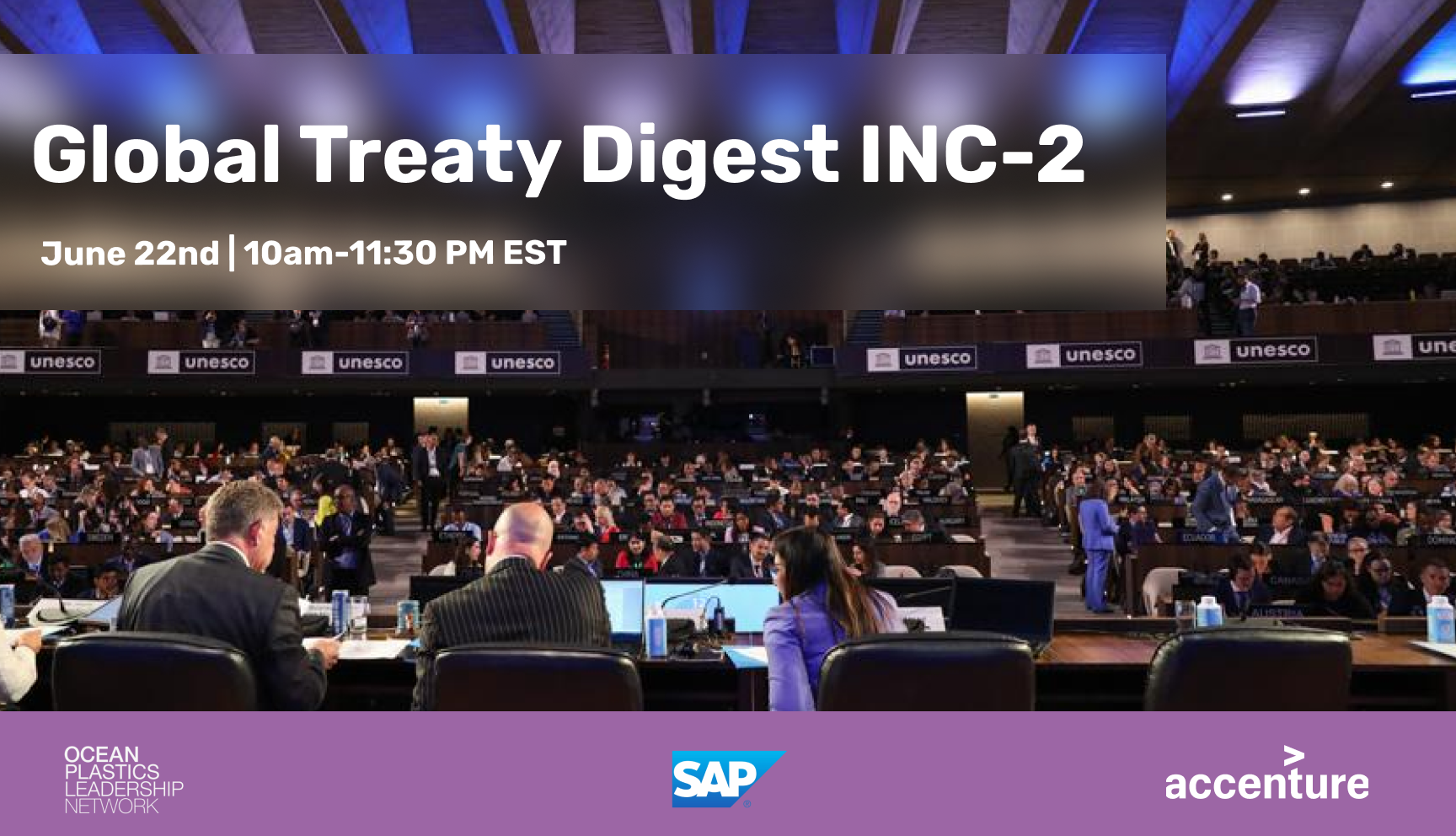
This worldwide event will enable participants to engage in an interactive Q&A and user polls on key issues. Join us for insights into:
- INC rules of procedure,
- the decision to begin work on a zero draft for the plastics treaty,
- key decisions and points of interest at INC-2,
- And upcoming events in the treaty process.
Join us on 22 June 2023 for the next step in meeting the plastics crisis head-on. RSVP here.
Insights from Global Treaty Dialogue Navigator
The Global Treaty Dialogues last convened just before INC-2 on 23 May 2023. Sustainability leaders, government reps, and other stakeholders worldwide met with their peers for a chance to analyze document submissions and seek stakeholder alignments before talks in Paris began.
We heard from four key negotiators in the INC-2 process, listed below. Their insights were supported by a global plastic policy analysis, delivered by Global Plastic Policy Centre’s Antaya March, and a report on high-level plastic waste reduction predictions by The Economist’s Charles Goddard.
The full video of OPLN’s INC-2 Deep Dive is available here:
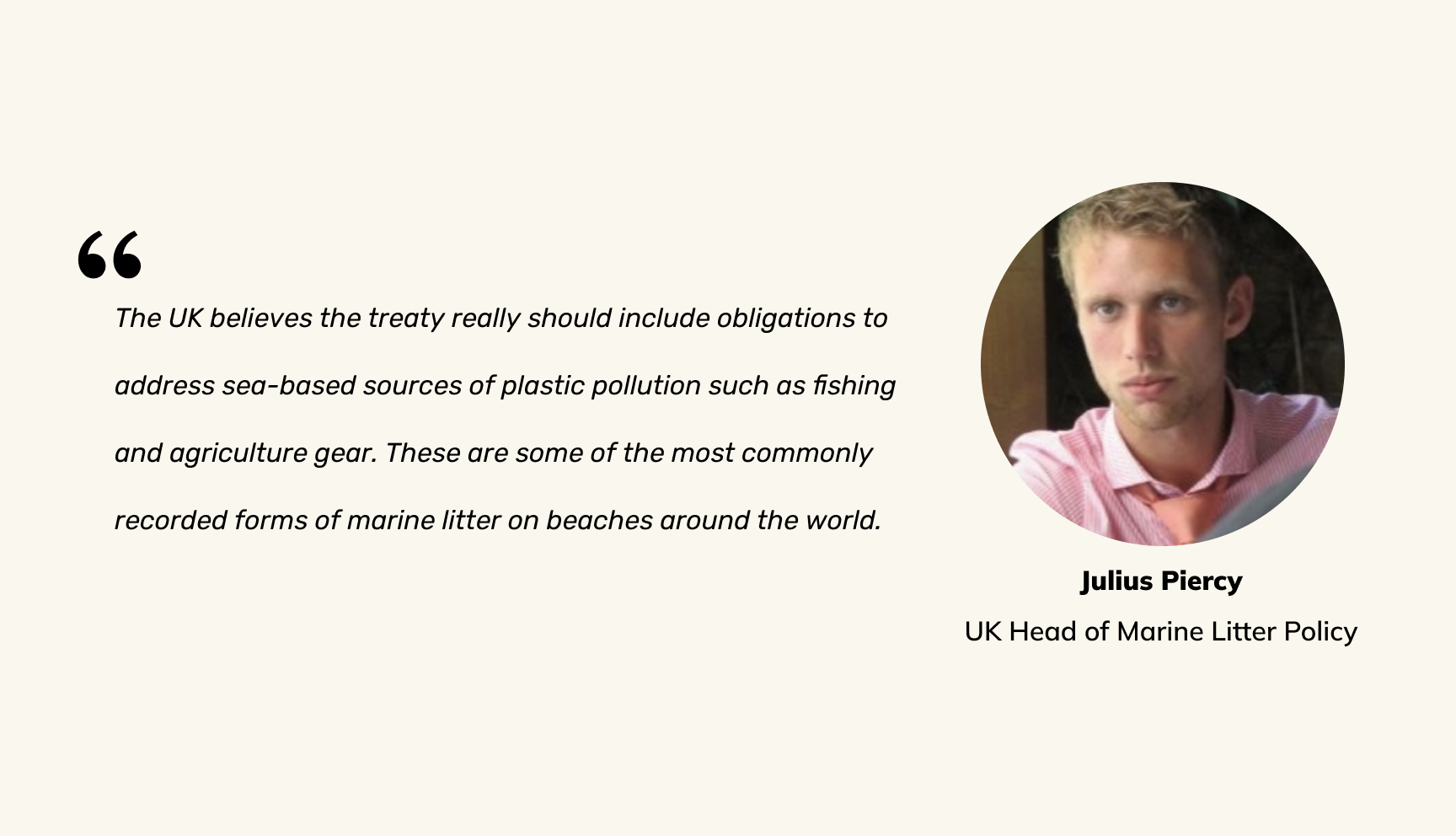
Piercy highlighted vital points of the United Kingdom’s submission to the INC, including a call for parties to adopt legally binding targets to restrain plastic production and consumption. He added that to move to a circular economy faster, “We need to start with the quickest wins, including global bans and restrictions on sort of specific avoidable plastic items, unintentionally added microplastics, as well as some plastic polymers, chemicals, and additives that could be hazardous or really difficult to recycle.”
Piercy also spoke on the inclusion of waste pickers in the plastics treaty, arguing in support of a just transition for these workers that addressed poverty and gender inequality. The UK negotiator’s opinion was that the informal waste sector should be recognized as a critical stakeholder in tackling plastic pollution and integrated into formal waste management schemes.
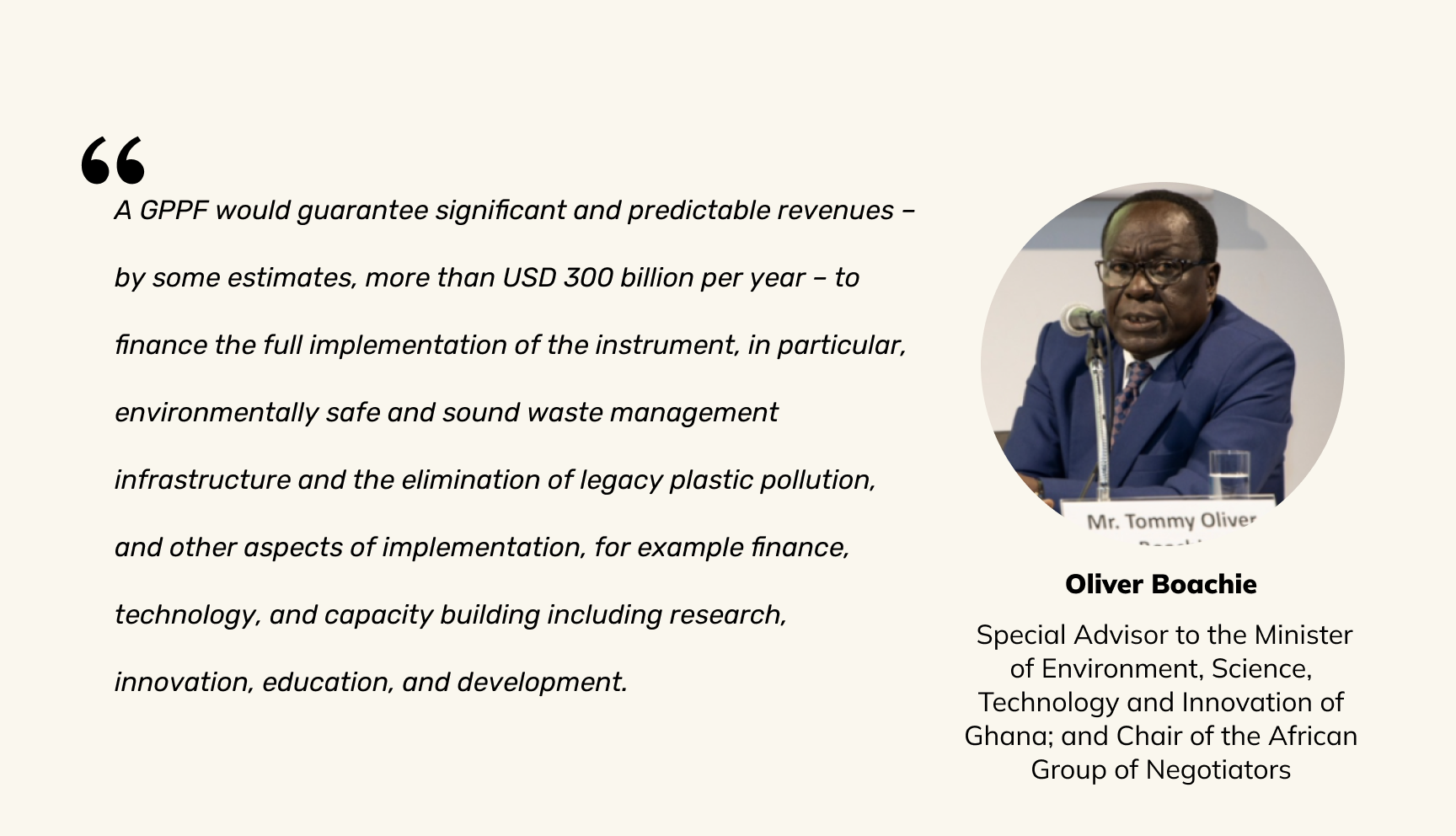
Boachie spoke on the entire African Group’s submission to the INC, as well as Ghana’s specific submission. In their document, the African Group agreed that plastic production and consumption volumes need to be reduced and recognized the need to set target dates for eliminating toxic chemicals from the plastic system. There was further alignment around transparency about the lifecycle of plastics, including a scientific basis for making decisions such as determining the toxicity of chemical additives.
Moving on to Ghana’s submission, Boachie therein proposed a global plastic pollution fee (GPPF) to raise resources for waste management facilities in member countries. Boachie argued this fee was a way to operationalize the often-referenced “polluter pays principle” under the treaty framework.
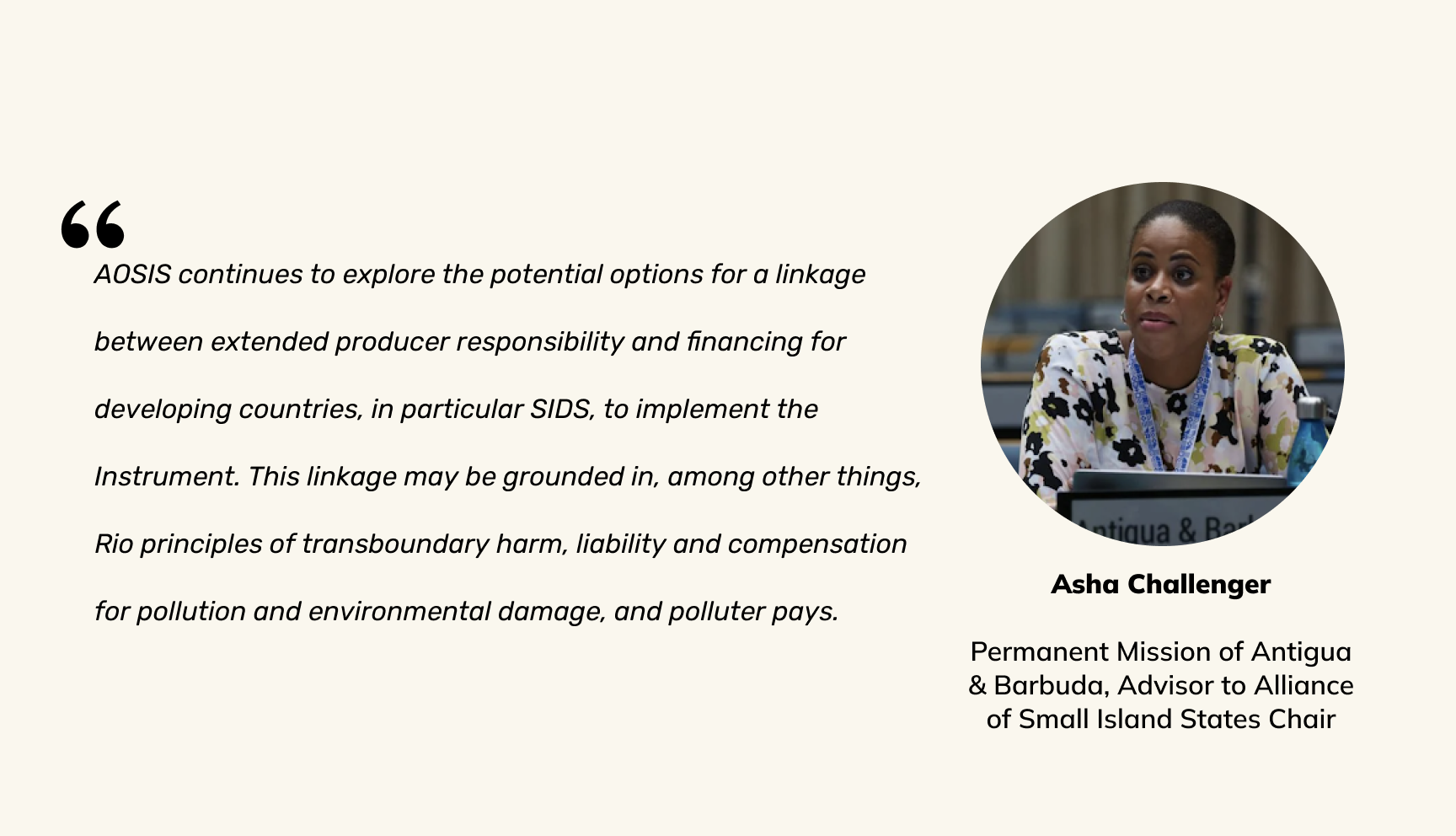
Challenger spoke of a matching commitment to both national and global collaboration, emphasizing the importance of strong nationally determined targets, ambitious global collective action, and non-state actor action. She argued that annexes should support these actions, allowing for flexibility to adjust ambitions based on new knowledge.
Per IISD, Earth Negotiations Bulletin, if this annex strategy were adopted, negotiators would need to decide on the content to be included in such annexes, which could include but is not limited to:
- supplementary technical information
- substantive provisions
- supplementary, or “umbrella” agreements
Challenger agreed with Boachie and other representatives that adequate and predictable means of implementation are crucial, particularly for developing countries and small island developing states (SIDS). She called for discussions on financing to be started ASAP. The Alliance of Small Island States’s (AOSIS’s) submission previewed how this financing mechanism may be tied to EPR.
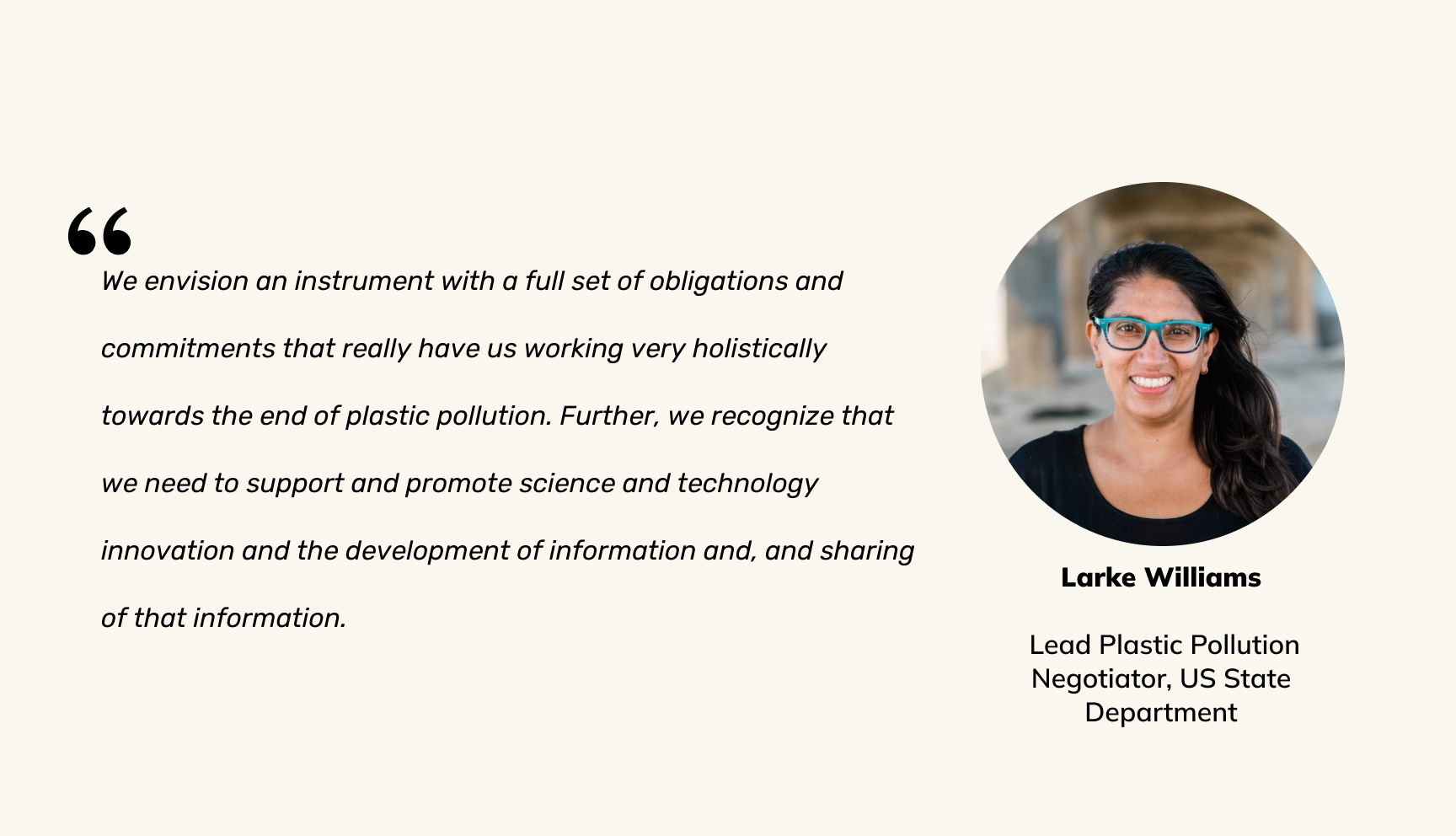
Among other key movers, Williams foregrounded the importance of strengthening existing systems to help in the treaty process. This is in line with the substantive roadmap for the treaty that came from UNEA 5.2: aiming to foster coordination among existing international environmental treaties to “prevent plastic pollution and its related risks to human health and adverse effects on human well-being and the environment.
Williams spoke of the importance of a global goal for plastic pollution reductions, noting the ambition of many Member states and stakeholders to end plastic pollution by 2040. “We [the US State Department] think 2040 is a good place to aim for.”
As for substantive matters, Williams supported a treaty that worked towards sustainable production and consumption and strengthened the environmentally sound management of plastic waste.
SAP and Accenture are proud to be Supporting Partners of the Global Treaty Dialogue Program 2023
SAP and Accenture share a commitment to a sustainable future. Through technology and human ingenuity, we are committed to delivering the digital solutions and innovations needed to enable the goals of this treaty at scale. SAP is a long-term partner to the Ocean Plastics Leadership Network and has greatly benefited from learning, collaborating, and co-innovating on ideas within the Network. In partnership with Accenture, our combined approach to developing technical solutions to advance the circular economy also focuses on ensuring businesses are ready to take on the challenges and opportunities that such a landmark treaty will represent. SAP Responsible Design and Production helps businesses navigate new regulations, standardize the approach to material measurement, support design processes that enable innovation and unlock solutions that will be sustainable for the long term.
